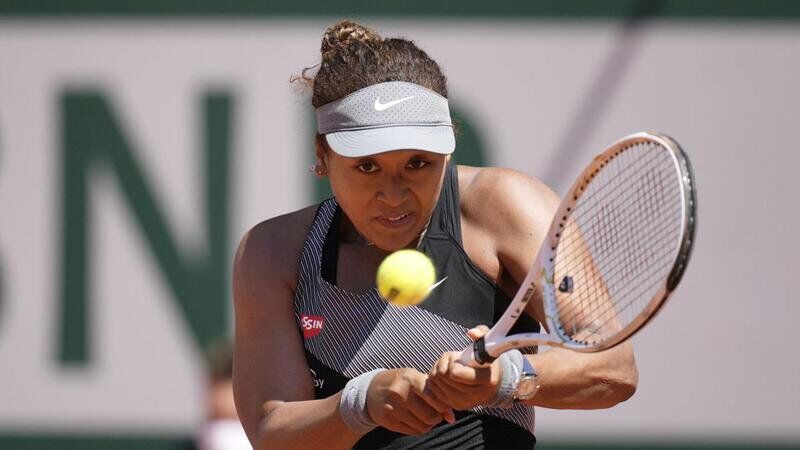Hayes: Osaka situation sparks access debate
Published 1:13 pm Monday, June 7, 2021

- Associated PressJapan's Naomi Osaka hits a backhand to Romania's Patricia Maria Tig during their first round match of the French Open tennis tournament at the Roland Garros stadium May 30 in Paris.
Naomi Osaka sent shockwaves throughout professional tennis and sports journalism when she announced she would not participate in press conferences during the ongoing French Open.
Osaka competed during the first day of the two-week tournament, and true to her word, she refrained from her post-match press conference. The French Open, in return, fined her $15,000 along with a reprimand and threats against future actions.
Osaka withdrew from play just a day later. Among the reasons she offered, the well-being of her mental health was given as a priority.
“The truth is that I have long suffered bouts of depression since the U.S. Open in 2018 and I had a really hard time coping with that,” Osaka wrote in part in the statement she released on Twitter.
Her decision received mixed reactions.
On one hand, sportswriters offered sympathetic takes while carefully acknowledging the importance of one’s mental health. Conversely, Osaka’s self-imposed gag order against the media during the French Open sparked the not-so-secret debate about access to athletes.
In the COVID-19 world, access across the board has shrunk significantly, and some in the profession – myself included – wonder what post-COVID-19 access will bring.
As a beat writer, the job relies on access to coaches and athletes.
The access not only allows insight into the minds of the coaches and athletes beat writers cover, but it also gives said writers insight into the inner-workings of them.
Furthermore, it allows them to give you – the reader – inside information about the programs that you passionately cheer on in their respective stadiums and arenas. They are, essentially, your portal into that world.
I don’t envy the coach or player who has to enter a press room after a loss and explain what went wrong in front of a room full of reporters and through channels that will be disseminated for the masses.
Personally, I’ve always felt a tinge of weirdness about trotting unpaid college athletes out to field questions after emotional losses, or even wins for that matter. However, I understand it’s part of the college student-athlete experience.
If there’s one good thing that has come from the past year, it’s the country’s focus on promoting mental health. We go to a doctor when we’re sick or when we break a bone, so why not see a trained professional for ailments of the brain? It appears the stigma of seeing a psychologist is finally being lifted.
Osaka is just 23 years old, and as someone who has competed at the highest levels of her sport for probably the better part of her life, I can’t even imagine the mental stresses and strains she’s experienced.
While many people have offered black-and-white takes on the matter, the issue is far more nuanced. Osaka’s mental well-being is of the utmost importance, and she has the right to any decision she makes to ensure it remains healthy.
What concerns me, though, is the precedent it might set for journalists and an industry where access to athletes remains an integral component of the job responsibilities.
There surely must be a way that both can co-exist, and Osaka’s situation could be the opportunity needed to address her concerns and the concerns of others who also struggle with anxiety and other mental health issues.
Elton Hayes is a veteran sports writer who covers Penn State for CNHI LLC publications. Contact him at ehayes@cnhi.com or follow him on Twitter @EHDC12.





